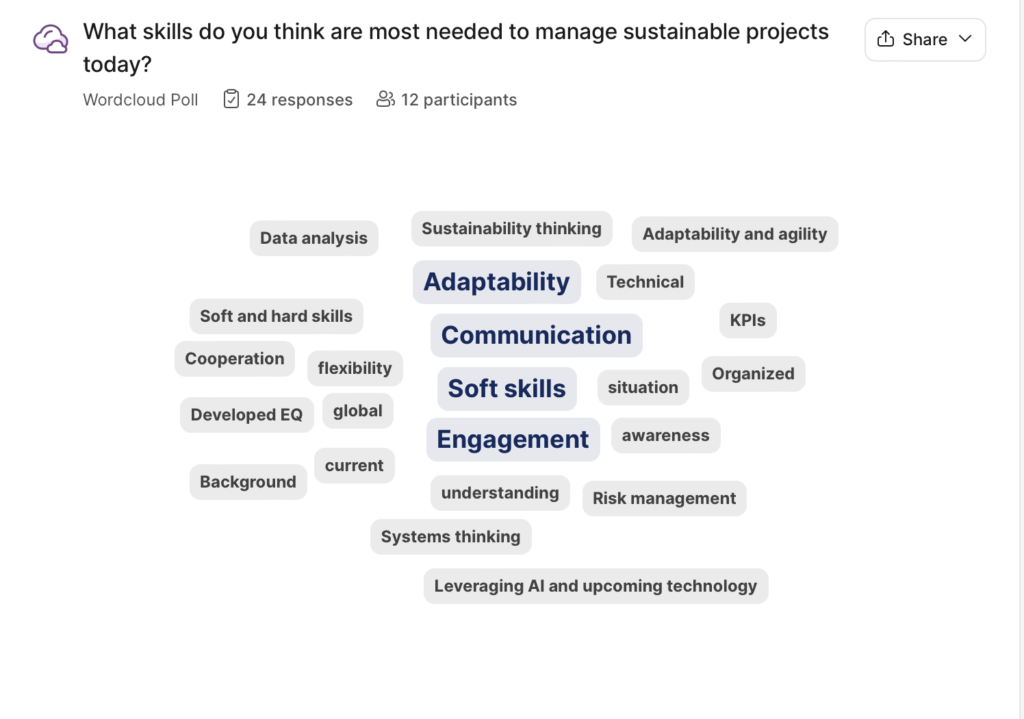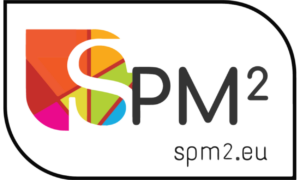
30 June – 1 July 2025 | Online (Zoom)
As part of its ongoing mission to equip professionals with tools for managing complex sustainability-oriented initiatives, the European Academy hosted a high-impact two-day training event exploring how the PM² methodology can support the green transition through project-based action.
Led by Prof. Dr. Danijela Ćirić Lalić from the University of Novi Sad, the session introduced PM² as a flexible, EU-compatible project management framework, with a special emphasis on its adaptability to sustainability objectives. The event also served as a testing ground for an innovative micro-credential in Sustainable PM², designed to meet emerging competence needs across sectors.
From Theory to Practice: Sustainability Meets Structure
The event offered more than technical guidance—it invited participants to reflect critically on what it takes to manage sustainability-driven projects. Through interactive exercises, skill mapping, and stakeholder analysis, participants explored not only how to manage projects, but why project managers must evolve as enablers of systemic change.
Highlights included:
- Introduction to PM²’s core elements with a sustainability lens
- Real-world case examples of project design aligned with EU green goals
- Stakeholder reflection on institutional readiness for the green transition
- Live polling via Zoom to gather input on skill needs, credential value, and learning preferences
Key Insights from Stakeholder Polling
Participants’ voices were at the center of this training. Through three real-time polls, the event captured meaningful insights:
- Top Competences Needed: Adaptability, systems thinking, risk management, communication, and even awareness of AI and emerging tech were flagged as essential.
- Value of Micro-Credential: The average score was 3.7/5, with 25% seeing it as extremely valuable, highlighting both interest and the need to further align with job market needs.
- Preferred Learning Formats: The top choice was self-paced online modules, reinforcing the need for flexible, modular, and accessible pathways to learning.
Who Participated?
The 15 participants represented a diverse cross-section of Europe’s professional landscape, including:
- Public sector (e.g. Ministry of Environment, FCCN, EKDDA)
- Private sector (e.g. Accenture)
- International NGOs (e.g. Irish Red Cross)
- EU Networks (e.g. Eureka Network)
This broad mix of experience levels and institutional backgrounds created a rich environment for peer exchange, fostering authentic conversations about real-world project challenges and solutions.
What Comes Next?
Participants expressed strong interest in future engagement, including:
- Deep-dive sessions focused on PM² sustainability toolkits
- Practical simulation exercises
- Co-creation of micro-credential content tied to specific job roles
The SPM² team will use the feedback gathered to refine its learning design and ensure that emerging offerings are aligned with both policy priorities and practitioner realities.
SPM² continues to serve as a catalyst for sustainable project excellence—equipping Europe’s professionals to lead the twin green and digital transitions with confidence and clarity.

